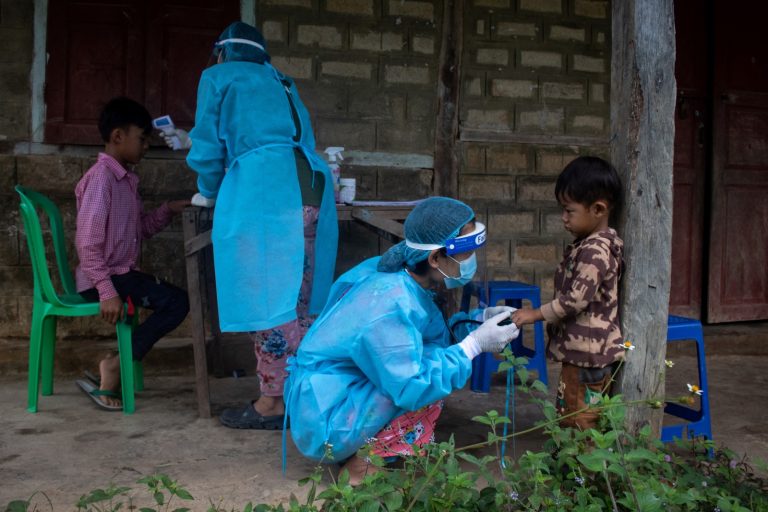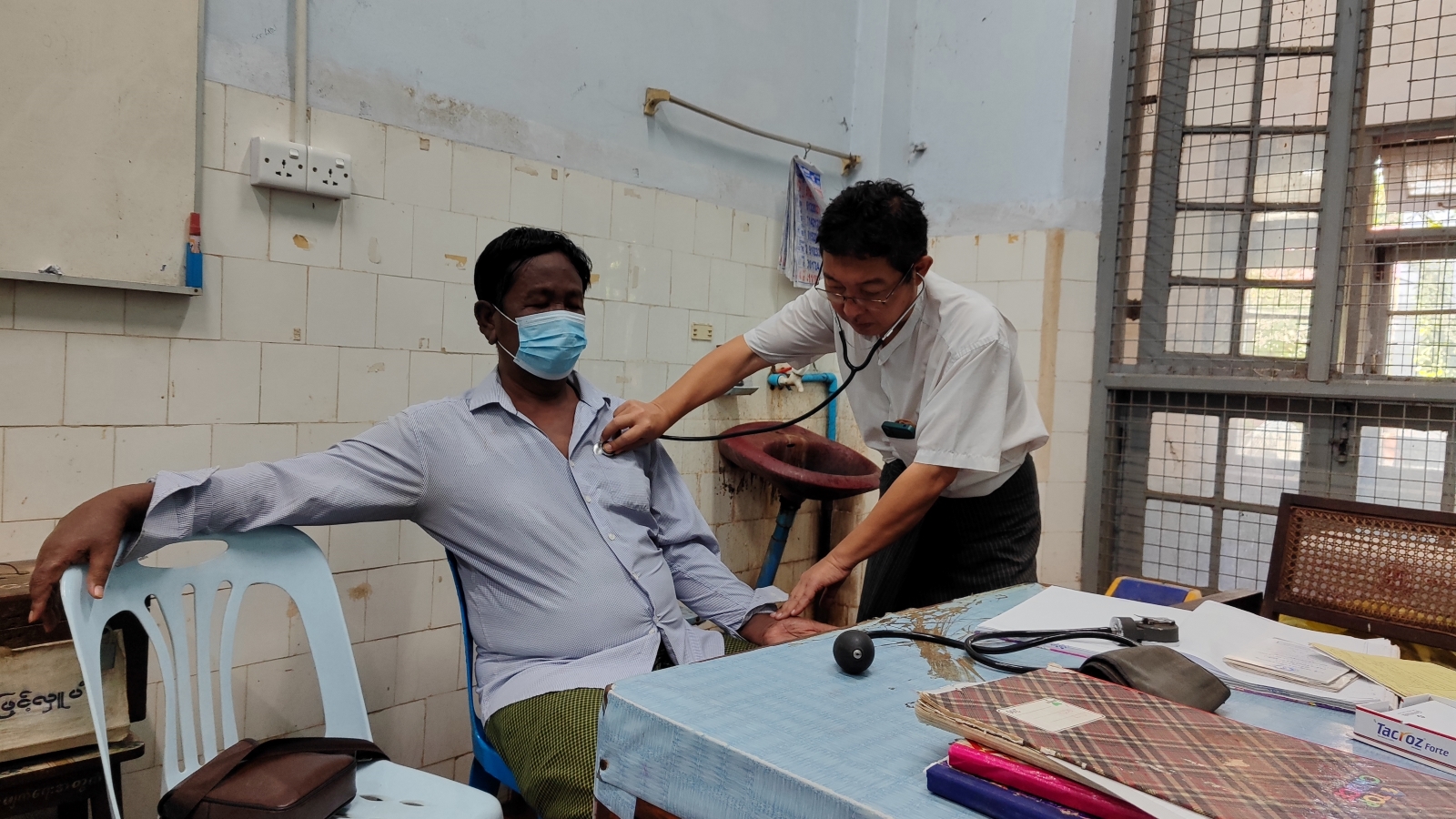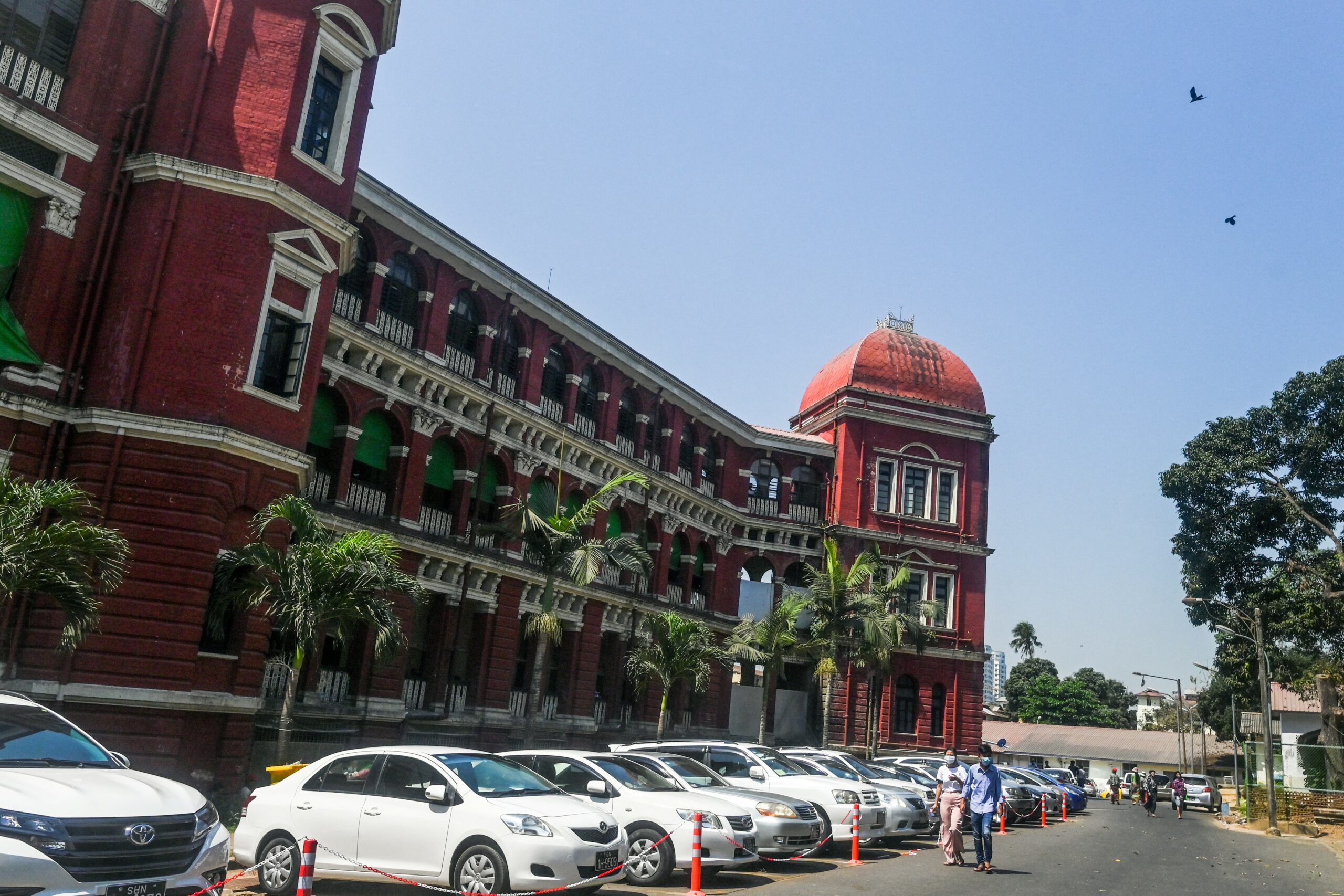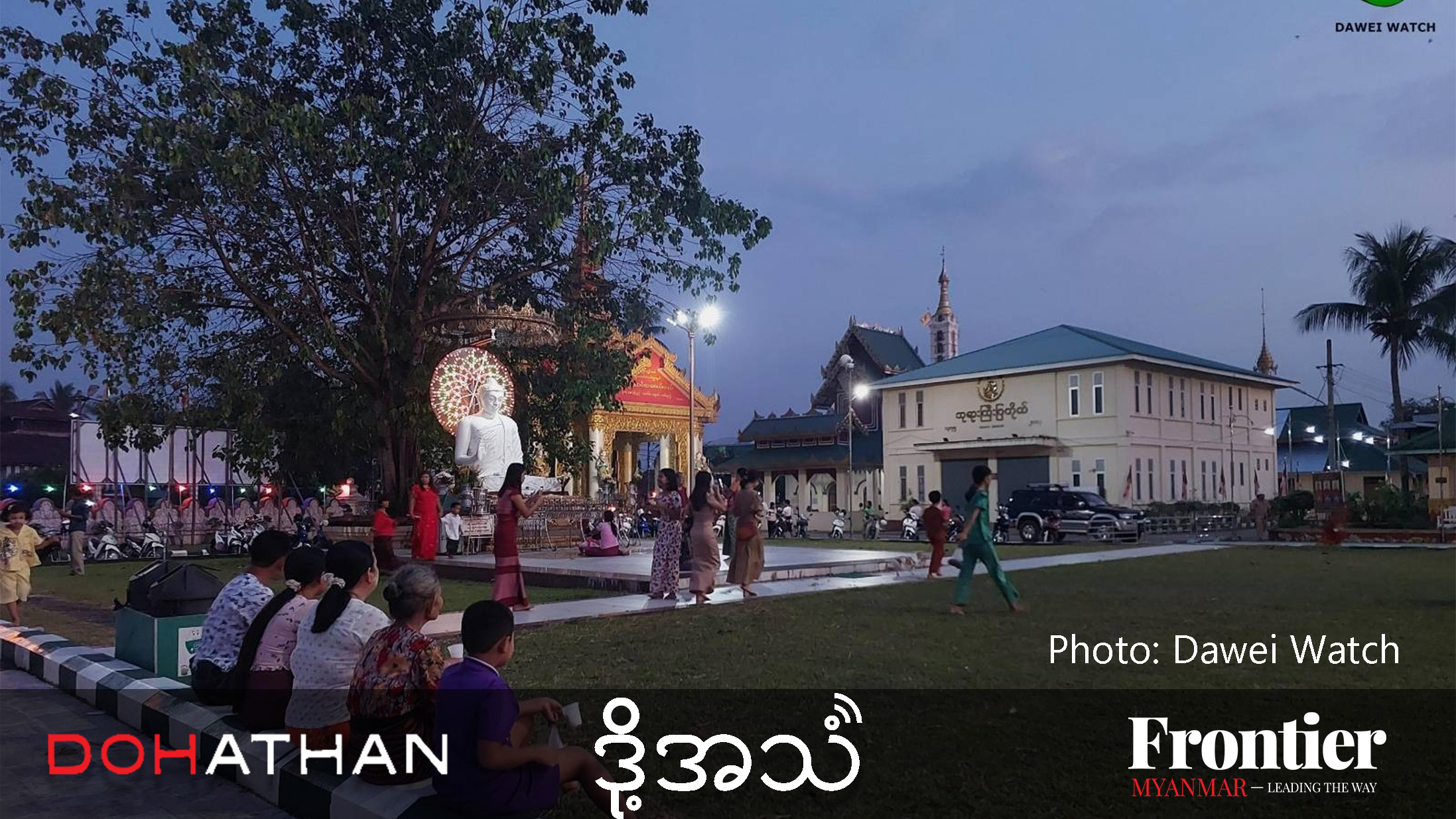A group of dedicated mothers has formed an association that aims to improve the quality of life of those with Down Syndrome and provide a supportive network for their careers.

Living with Down Syndrom in Myanmar. (Ann Wang / Frontier)
It was 6:30am. The streets were quiet and the air was fresh, the rare moment when there is no traffic in Yangon. Ma Theint Theint Thu, 19, had her backpack ready as she eagerly waited to jump in the car.
Ma Theint Theint Thu has Down Syndrome and she was looking forward to swimming training at the North Dagon Sports Stadium for the Disabled. Each swimming session is two hours and she has four sessions a week. It is Ma Theint Theint Thu’s only chance to leave the house for some fun. “Swimming makes her happy because she can make friends at the swimming pool and she has lost a lot of weight,” said her eldest sister, Ma Thu Zar Lwin.
The World Health Organisation says Down Syndrome affects about one in every 1,000 births but the number of people in Myanmar with the disability is unknown. Life can be challenging in Myanmar for those with Down Syndrome or any other disability, because of a lack of government healthcare support and stigmatisation in the community.
“People in Myanmar always fail to distinguish between persons with Down Syndrome or intellectual disabilities and persons with mental disabilities,” said U Nay Lin Soe, the founder of the Myanmar Independent Living Initiative, an organisation for people with disabilities. “They can’t get into mainstream schools or get jobs or participate in community activities,” he said.
“They are mostly treated as a burden on the community.”
Support more independent journalism like this. Sign up to be a Frontier member.

Living with Down Syndrome in Myanmar. (Ann Wang / Frontier)
Ma Theint Theint Thu has never attended school. “We can’t drive her to school every day and, also, I don’t think she would be happy at school because the teachers won’t understand her condition,” said one of Ma Theint Theint Thu’s five siblings, who added that the whole family worked to support the teenager.
Ma Theint Theint Thu’s family owns a printing shop in Yangon’s outer northeastern North Okkalapa Township, where she received most of her education. It included learning how to bind books and type on a computer and opportunities to develop her communications skills with customers.
Among those in Myanmar with Down Syndrome, Ma Theint Theint Thu is considered to be fortunate to have received any kind of education. A recent report by Yangon’s Eden Center for Disabled Children in partnership with the London-based INGO, Voluntary Service Overseas, found that a lack of support and understanding among teachers, as well as peer discrimination and transportation barriers, were resulting in children with special needs being pushed out of the school system rather than dropping out.
If Ma Theint Theint Thu is asked if she likes swimming, she claps her hands in delight and giggles before shouting ‘Yes!’. But it took weeks before she overcame a fear of the water that remains evident in the cries she utters when swimming.
U Hla Maung Thein, who has been a swimming coach for nearly 30 years, said it had taken U Theint Theint Thu two months to develop the confidence just to step into the pool.
“It takes at least twice or triple the time for a disabled person to learn how to swim, but this exercise is great for them,” said U Hla Maung Thein.
“It improves their cognitive skills, muscle strength, confidence, trust and communication skills,” he said. The self-taught coach of children with special needs has been giving swimming lessons since they were first organised in Yangon four months ago by the parents of Down Syndrome children.
U Hla Maung Thein said he had tried to train other coaches, but few had the tremendous capacity for patience that was essential when helping children with special needs.

Theint Theint Thu has never attended school, but she learned to type in the family’s own printing shop. (Ann Wang / Frontier)
U Hla Maung taught himself how coach children with special needs out of necessitiy. There is no instution in Myanmar that provides training for instructors of children with special needs, said U Nay Lin Soe. The School for Disabled Children and Eden Centre for Disabled Children recently provided special teacher certificate training in collaboration with the Department of Social Welfare.
Daw Myo Pa Pa will always remember the life-changing day 12 years ago when a doctor said her daughter had been diagnosed with Down Syndrome. Daw Myo Pa Pa was sad, shocked and also confused, because the doctor provided no information about the condition. She knew nothing about Down Syndrone, how it would affect her child or where to seek help. Nothing.
Daw Myo Pa Pa went home and cried for hours before wiping her tears dry and deciding to do all she could to give her daughter a happy life. This year she decided to do more for the other parents in her position and helped to establish the Myanmar Down Syndrome Association. It aims to share information among families, create awareness about Down Syndrome, provide vocational training and advocate for changes to government policies about the disabled.
The association is awaiting official recognition.
“We are going to have to wait until the election is over,” said Daw Myo Pa Pa “We have asked the Myanmar Police Force and Ministry of Social Welfare, but they both don’t have the full authority to give us a permit for the association,” she said, adding that the ministry had referred the association to the Myanmar Council of Persons with Disabilities, formed at the end of 2014.

Theint Theint Thu’s mother never thought about giving her up because she has down syndrome. Instead she focuses on what she can do to make her daughter happy. (Ann Wang / Frontier)
In recent years, Myanmar has made progress towards providing improved care for members of its disabled community, starting with the first national disability survey in 2010 to compile much needed data. The government adopted a National Plan of Action for People with Disabilities in 2010, ratified the UN Convention on the Rights of Persons with Disabilities in 2011, and enacted the Disability Rights Act in June, 2015. However, the feedback from familes with disabled loved ones is that while there has been an increase in rules and regulations, little has changed in reality.
While they wait for meaningful change at government level, the volunteering mothers of the Myanmar Down Syndrome Association dedicate themselves to improving the quality of life of loved ones. As well as organising the swimming classes, they hold monthly meetings to discuss plans for the future. They want to start a dental clinic for people with Down Syndrome, join the Special Olympics and arrange some vocational training. The empowerment that came from forming their own group is generating lots of ideas.






